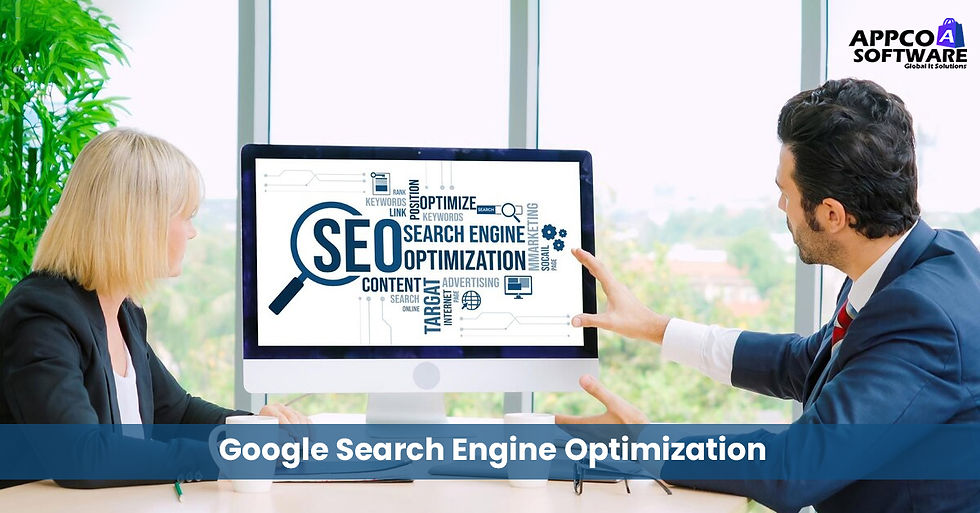How to Speed Up WordPress Website with a Professional Developer
- Appco Software

- Mar 4
- 3 min read

A slow website can negatively impact the user experience, search engine rankings, and conversion rates. When a website takes too long to load, visitors tend to leave before exploring its content. Speed plays a crucial role in keeping users engaged and ensuring they have a smooth browsing experience. If your WordPress website is sluggish, it’s time to optimize it for better performance.
A WordPress website developer can help you speed up a WordPress website by implementing various optimization techniques. From reducing loading times to improving server performance, an expert developer ensures that your website runs efficiently. In this guide, we’ll explore different strategies to enhance WordPress speed and the role of a developer in making these improvements.
Why Is Website Speed Important?
Before diving into optimization techniques, it’s essential to understand why website speed matters.
Better User Experience: Fast-loading pages ensure a seamless experience, reducing bounce rates.
Higher Search Engine Rankings: Google considers page speed as a ranking factor, so a slow site may hurt SEO.
Increased Conversions: Faster websites lead to higher engagement and more sales.
Lower Server Costs: Optimized websites use fewer server resources, reducing hosting expenses.
How to Speed Up WordPress Website?
There are several ways to speed up WordPress website, from optimizing images to using better hosting. Here are some of the most effective techniques:
1. Choose a Reliable Hosting Provider
Your hosting provider plays a significant role in website speed. Shared hosting can slow down your website due to limited resources. A WordPress website developer can recommend and set up a high-performance hosting provider like VPS, dedicated hosting, or managed WordPress hosting.
2. Use a Lightweight Theme
Some WordPress themes come with unnecessary features that slow down your site. Choosing a lightweight, well-coded theme improves speed. A developer can customize a theme to remove unnecessary elements and enhance performance.
3. Optimize Images
Large images are one of the primary reasons for slow websites. To improve load times, you should:
Use compressed image formats like WebP.
Install image optimization plugins like Smush or ShortPixel.
Resize images before uploading them.
4. Minify CSS, JavaScript, and HTML
Reducing the size of CSS, JavaScript, and HTML files can help speed up WordPress. Minification removes unnecessary spaces and code comments, making files smaller. Developers use plugins like Autoptimize or WP Rocket for this purpose.
5. Enable Caching
Caching stores a static version of your website, allowing it to load faster for returning visitors. There are various types of caching:
Browser Caching: Saves website data in users’ browsers.
Page Caching: Creates a static version of pages.
Object Caching: Stores database queries to reduce load time.
A WordPress website developer can configure caching plugins like W3 Total Cache or WP Super Cache for maximum efficiency.
6. Use a Content Delivery Network (CDN)
A CDN speeds up a website by distributing its content across multiple servers worldwide. When visitors access your site, they receive data from the nearest server, reducing loading time. Popular CDN services include Cloudflare and StackPath.
7. Reduce Plugins and Scripts
Too many plugins slow down WordPress websites. Deactivating unnecessary plugins and removing unused scripts improve performance. A developer can analyze and recommend only essential plugins.
8. Optimize Database
Cleaning up the WordPress database removes unnecessary data such as old revisions, spam comments, and expired transients. Plugins like WP-Optimize help automate this process.
9. Implement Lazy Loading
Lazy loading defers loading images and videos until a visitor scrolls down the page. This reduces the initial load time and improves speed. WordPress has built-in lazy loading, but developers can enhance it with custom scripts.
10. Keep WordPress Updated
Regular updates improve security and performance. Keeping WordPress core, themes, and plugins up to date ensures compatibility and faster performance.
How a WordPress Website Developer Can Help
A WordPress website developer plays a crucial role in optimizing site speed. Here’s how they can help:
Customizing Themes and Plugins: Developers remove unnecessary code, making themes and plugins run efficiently.
Server Optimization: Setting up proper server configurations for better performance.
Technical SEO Improvements: Optimizing website structure, images, and scripts for faster loading times.
Security Enhancements: Ensuring your website stays safe from attacks that can slow it down.
Advanced Caching Techniques: Implementing server-side caching for maximum speed improvements.
Conclusion
A fast-loading website is essential for user satisfaction and search engine rankings. By working with a WordPress website developer, you can speed up a WordPress website efficiently. Implementing best practices like caching, image optimization, and CDN integration significantly improves performance. If your website is slow, now is the time to invest in optimization and provide visitors with a seamless browsing experience.






Comments